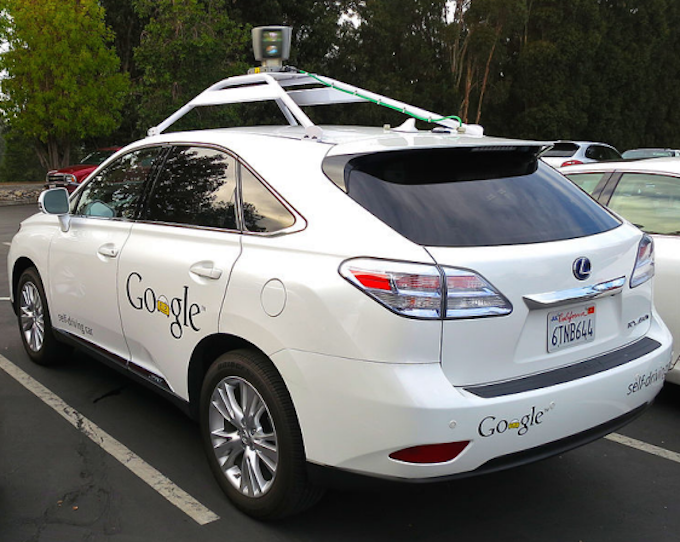Google’s Self-Driving Car Involved In Collision Resulting In Injuries For First Time
Google’s self-driving prototypes have been tooling around on real roads for some time now, and like cars that are driven by people, they’ve had a few bumps and traffic incidents, but no one has gotten hurt. That’s all changed now, as the company reports one of its driverless vehicles has been involved in an accident that involved injuries for the first time.
The collision happened near Google’s home in Mountain View, CA, where 20 of its self-driving prototypes have been cruising around recently. In this case, the company’s Lexus SUV bearing sensors and cameras was hit from the back, Chris Urmson, head of Google’s self-driving car program, wrote in a blog post on Thursday, and three Google employees riding inside to monitor the test car complained of minor whiplash as a result.
They were checked out at a hospital and later cleared to go back to work after the July 1 collision, Google says, while the driver of the other car also complained of neck and back pain.
Because these cars are just prototypes and can’t drive around without a human behind the wheel just yet, a Google employee is required to be behind the wheel. Then there’s usually someone in the front passenger seat to take notes and in this case, there was another Googler in the back seat along for the ride.
According to an accident report that Google filed with the California Department of Motor Vehicles about the July 1 crash, the driverless SUV was going about 15 mph in self-driving mode behind two other cars, as they all approached an intersection with a green light. When the first car slowed to a stop so it wouldn’t block the intersection, the other car and Google’s vehicle also stopped.
About a second later, a fourth vehicle hit Google’s car from the back at about 17 mph, with the driverless car’s on-board sensors showing the other car did not brake.
Though police responded, they didn’t file an accident report. This is a good thing, says Google’s Urmson.
“We’re seeing first-hand the true measure of how distraction is impacting driving,” he told USA Today. “None of our accidents rise to the level of police reports. So what we are experiencing is what the road is really like.”
The company started issuing monthly reports about the collisions and accidents in June (including a list of all the accidents before then), noting that the company’s cars hadn’t been the cause of any of the previous collisions.
Out of a total of 14 accidents in the last six years and 1.9 million miles of testing, the company says 11 of those involved Google cars getting rear-ended.
Urmson adds in his post that the SUVs “are being hit surprisingly often” by distracted drivers, who could be looking at their phones.
“The clear theme is human error and inattention,” Urmson wrote. “We’ll take all this as a signal that we’re starting to compare favorably with human drivers.”
Want more consumer news? Visit our parent organization, Consumer Reports, for the latest on scams, recalls, and other consumer issues.


